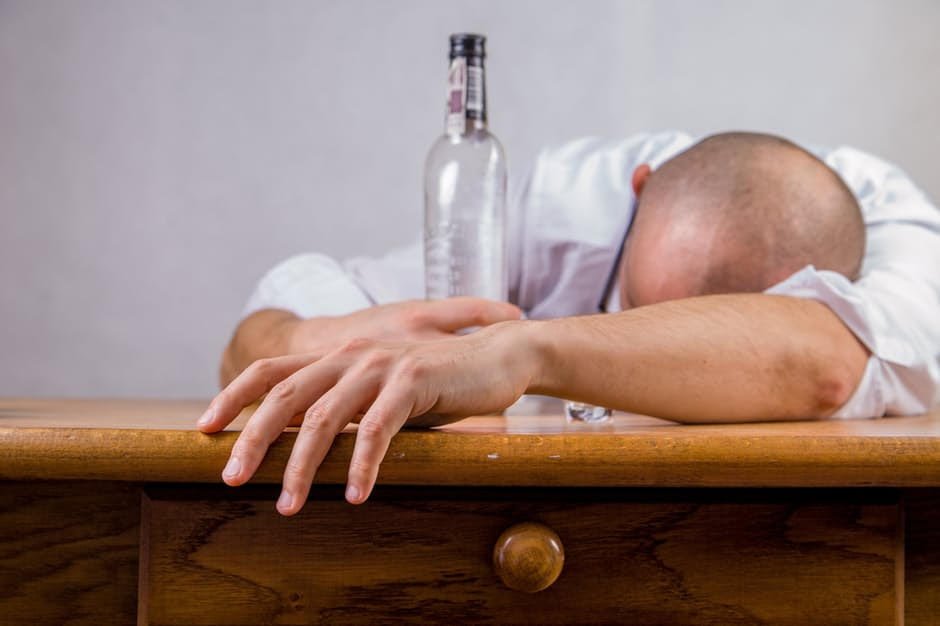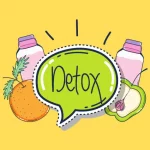There are so many reasons that people give up alcohol revamping their diet, or something more serious like being proactive about a potential problem.
No matter why the benefits come with a lot of effort, and in the end, it will pay off. There will be good days, there will be bad days, and there will be days that fall somewhere in between.
This is what you can look forward to when you stop drinking alcohol.

1. Get Ready For a Sweet Tooth
Alcohol and sugar both boost levels of dopamine, the “reward” chemical that drives feelings of pleasure. Because of this, it is likely that when you give up one substance you will start to crave the other.
While this is totally okay, it should be entertained in moderation. Don’t be surprised when you find that you get the same feeling from sweets that alcohol has given you, just ensure that you are not replacing alcohol with crazy amounts of sweets.
2. You Will Sleep Better
While it is possible that alcohol helps some people to fall asleep, it actually leads to disrupted sleep. When sleeping alcohol-free, individuals can not only fall asleep faster, but they can enjoy a deeper sleep allowing them to wake up feeling refreshed the next day.
Better concentration, a better mood, and a boost in mental performance are all byproducts of getting a night of quality sleep.
Alcohol causes the type of brain activity normally seen when awake when you are sleeping, and this is the reason that while you might pass out hard, the quality of sleep won’t be good at all.
3. Lose Some Pounds
Consuming alcohol has a way of sneaking extra calories into the body sort of under the radar. Mixed drinks and frozen drinks are the biggest culprits for this.
One study found that women who drink moderately add about 300 calories to their diet. When alcohol is gone from the diet and not replaced with sugary sweets, the weight can start to come off with very little effort on your part.
Upping your intake of water in place of alcohol will also help with this.
4. You May Experience Withdrawal
If you were a regular drinker of alcohol, it is possible that your body will go through withdrawal within the first 48 hours of detox.
This all depends on how much you consumed on a daily basis it can feel as slight as a hangover or as bad as a real medical condition.
The bad symptoms will be things like raised blood pressure, insomnia, and sweating.
Related Article: How Does This Magical Herb “Kratom” Help With Getting Off Alcohol?
5. Clearer Skin
Your skin will start to look and feel a bit more hydrated. Alcohol is a diuretic, causing the body to urinate more constantly and it also leads to the reduction in a hormone that acts as an antidiuretic (this helps the body to absorb water).
When the body is lacking sufficient water, the skin will tend to appear as parched as it is. When you stop drinking alcohol, the body will absorb water better, and conditions like eczema, dandruff, and rosacea may also improve.
6. It Could Get Worse Before It Gets Better
The first few days are vital to a successful recovery from alcohol consumption. If your habits would be classified as extreme, it is likely that you may need medical treatment to help in dealing with the withdrawal.
7. Some Health Risks are Lowered
Alcohol increases the risk of cancers of the liver, breasts, colon, mouth, and even rectum. The more alcohol that is consumed, the more the risk increases.
The chance of developing liver cirrhosis will also be reduced when alcohol is removed from the diet.
Overall, quitting alcohol can do wonders for one’s overall health and the liver may even return to regular levels of functioning if it is not too severely damaged because of drinking or other factors.
8. You Will Save Money
Drinking can become an expensive habit, especially if you are one to indulge in fine wine or liquor. Add up what you spend weekly or monthly on alcohol that is consumed at home and when out and about.
Chances are that the number is much more than what was anticipated and can actually become a great motivator for staying away from alcohol for as long as you would like.
9. Your Immune System Will Thank You
Excessive amounts of alcohol lead to a diminished immune system, making the body more susceptible to things like pneumonia and even some forms of cancer.
Even just one episode of binge drinking will lead to an immune system that is overworked, but the good news is that the immune system can be strengthened over time.
10. You May Feel Some Envy
It is almost guaranteed that you will feel like you are missing out on the good time when you have decided to stop drinking alcohol, and it might leave you envious.
Many times alcohol is used as a social icebreaker, and those who give it up might end up feeling agitated when in a situation that they would normally be drinking.
The best solution for this might be to stay away from unnecessary interactions that revolve around alcohol while you are unsure about how you may feel.
11. You Will Eat Less
Alcohol is one of the biggest factors in consuming excess amounts of food. It heightens the senses and increases brain activity within the hypothalamus allowing the person to become more sensitive to the aroma of food, leading to an excessive intake.
When your senses are not altered by the effects of alcohol, you will be able to enjoy a normal-sized meal without overdoing it.
And because alcohol lowers inhibitions, you will make a smart decision to maybe skip the dessert with dinner.
Conclusion
When done right, you will see that the effort put in to stop drinking will be worth it. To be done successfully, you will need to want to do it, otherwise, it will be nothing more than a constant battle.
Just think of how much better you will feel after just a week.
Disclaimer: All images are provided by the author.
About Author:
 Jimmy is a widely experienced content writer with a zeal for living naturally. As a Certified Herbalist and father of two children, he can offer you simple solutions on how to achieve a healthier lifestyle. He also writes for http://howtonight.com/
Jimmy is a widely experienced content writer with a zeal for living naturally. As a Certified Herbalist and father of two children, he can offer you simple solutions on how to achieve a healthier lifestyle. He also writes for http://howtonight.com/




